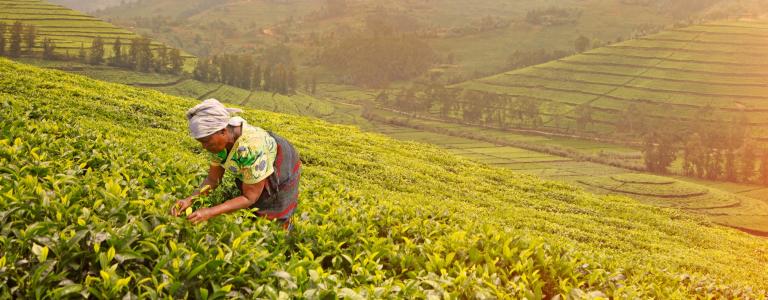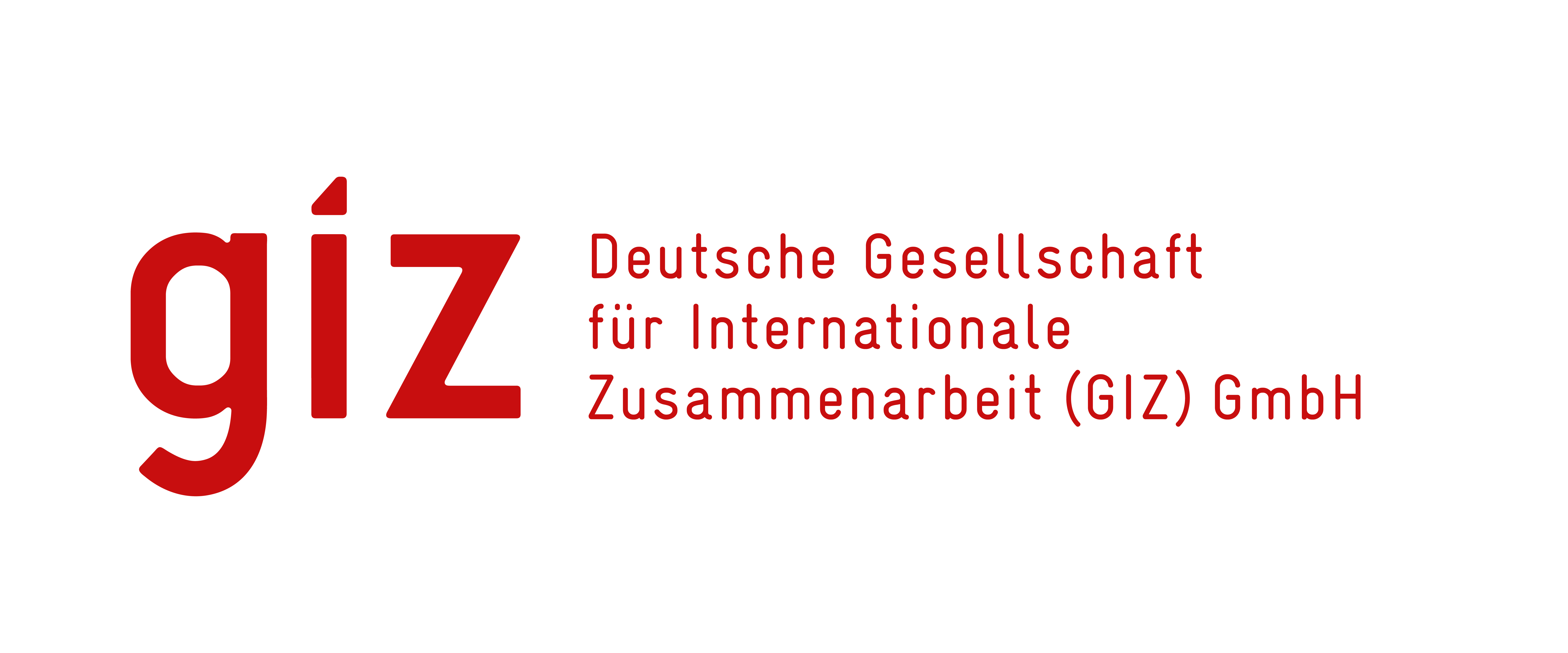WTO Agriculture Negotiations and Sustainable Development
Ahead of the next World Trade Organization (WTO) Ministerial Conference in February 2024, the International Institute for Sustainable Development and the International Food Policy Research Institute (IFPRI) organized a series of webinars to provide an opportunity for WTO delegates and government officials to explore how WTO Agriculture Negotiations could further key sustainable development objectives, such as food security and environmental sustainability.
As WTO members start preparing for the next WTO Ministerial Conference (MC13), to be held in the United Arab Emirates in February 2024, the IISD and the IFPRI organized a series of webinars on WTO Agriculture Negotiations and Sustainable Development. The webinars, held in late September 2023, aimed to bring insights from the research community on how WTO rules on agricultural trade could better contribute to food security and environmental sustainability, as envisaged in the preamble of the WTO Agriculture Agreement. During the webinars, WTO negotiators, capital-based officials, and independent experts discussed how to mainstream sustainable development objectives into areas of the WTO Agriculture Negotiations that have gained renewed momentum in the run-up to MC13, including Domestic Support, Public Stockholding for Food Security Purposes (PSH), and Export Restrictions.
Domestic Support Rules to Promote Food Security, Climate Action, and Healthier Diets
The first webinar in this series focused on "Domestic Support Rules to Promote Food Security, Climate Action, and Healthier Diets." This webinar explored how WTO Agriculture Negotiations on Domestic Support can promote sustainable development objectives, such as food security, climate action, and healthier diets, while addressing negative impacts on production and trade. The webinar brought together agricultural trade experts to discuss ideas proposed in the current negotiations, including (i) reductions of product-specific support, especially support that is highly concentrated in emissions-intensive products or unhealthy food commodities; (ii) the potential of the Green Box subsidies allowed under the WTO Agriculture Agreement to achieve sustainability objectives, including water management, biodiversity, and climate change; (iii) how repurposing agricultural support can contribute to healthier diets; and (iv) the opportunities and challenges of repurposing agricultural support to consumers.
Experts argued in favour of using product-specific caps to avoid the concentration of agricultural support in a few commodities, including emission-intensive commodities (e.g., beef, milk, and rice) or unhealthy foods (e.g., sugar). One of the key takeaways was that concentrating agricultural support into a few commodities could cause large distortions in production and trade, leading to large losses for producers in those countries that fail to match subsidy levels, such as cotton-producing countries in West Africa. In that regard, experts found that product-specific caps to avoid a concentration of agricultural support in a few commodities will not only deliver a reduction of highly distortive support but also increase agricultural production in middle and low-income countries (except Brazil, Russia, India, China, and South Africa [BRICS countries]).
Experts also discussed how to leverage domestic support to achieve sustainability objectives, including climate action and healthy diets. They underlined that while the WTO Agriculture Agreement provides a good amount of flexibility to grant payments for water management, enhance biodiversity, or mitigate climate change, further amendments to the WTO’s Green Box might be considered to achieve these sustainability objectives. An example could be adding nuance to the wording of the fundamental requirement of the Green Box subsidies, which establishes that these subsidies shall have no, or at most minimal, trade-distorting effects or effects on production.
There was also some discussion on the relationship between domestic support and healthy diets. Experts underlined that repurposing agricultural support to make healthy diets more affordable entails important trade-offs for countries across the world. There are trade-offs, for instance, between increased greenhouse gas (GHG) emissions and the affordability of healthy diets, as well as other important considerations, such as farm incomes and the prevalence of undernourishment.
Finally, there was a reference to the potential of consumer support (vis-à-vis agricultural support targeting specific commodities, which often has trade-distorting effects) to promote healthier diets. Experts highlighted that consumer support, which is contemplated under the WTO’s Green Box as domestic food aid to sections of the population in need, could increase the purchasing power of poor consumers, improve calorific intakes, and deliver healthier diets.
Public Stockholding (PSH) Programmes and Food Security
The second webinar, "Public Stockholding (PSH) Programmes to Promote Food Security of WTO Members," explored how new approaches to PSH can promote domestic food security while limiting harmful impacts on trading partners. Discussions focused on (i) the objectives and impacts of PSH programs on both food security and trade, (ii) updating the fixed external reference price (FERP) to calculate market price support for PSH programs, and (iii) options for WTO members to consider ahead of MC13 when negotiating a permanent solution for PSH.
Experts discussed the objectives of public stockholding programs, including distributing food, protecting consumers by stabilizing prices and reducing their vulnerability to price shocks, and supporting rural incomes. They also referred to the possible impacts—both positive and negative—of PSH programs on producers, consumers, and government budgets. There was a call to ensure proper targeting of PSH programs, both in procurement and in food distribution, to reach the most vulnerable populations. It was mentioned that given their market impacts and significant costs, these programs should be carefully evaluated against other policy alternatives.
Experts highlighted how the food price increases in the mid-2000s caused food prices to diverge significantly from the 1986–88 base-level FERPs used to calculate market price support for PSH programs. Responding to debates around the need to update FERPs, one expert suggested updating the concept of market price support at the WTO by using a moving average of recent border prices rather than FERPs. He claimed that such an alternative could largely resolve the PSH impasse: for developing countries and users of PSH programs, complying with their domestic support commitments would not require reducing artificially high measurements of market price support. For other countries, especially those that propose constraints on the use of PSH programs, this alternative could ensure that WTO disciplines on market price support have a sound economic basis.
Finally, experts discussed possible options for a permanent solution to PSH. In addition to updating the FERP to calculate market price support for PSH programs, these options include (i) revisiting the definition of "eligible production," which is also an important element in calculating market price support for PSH programs; (ii) exempting support when pre-announced "administered" or "fixed" prices are set below international market prices; (iii) exempting least developed countries (LDCs) and smaller economies from the requirement to count food purchased at "administered" or "fixed" prices in the aggregate measurement of support (AMS) or agreeing not to challenge the compliance of their PSH programs through the WTO dispute settlement process; and (iv) establishing a permanent solution based to some degree on the 2013 Bali Decision on PSH, under which WTO members would agree not to challenge the compliance of a developing country member with its obligations under the WTO Agriculture Agreement regarding their maximum allowed levels of domestic support.
Export Restrictions and Food Security in the Context of Climate Shocks
The third and final webinar of the series, "Export Restrictions Rules to Promote Global Food Security in the Context of Climate Change and Extreme Weather Events," covered (i) the effectiveness and impacts of export restrictions; (ii) how climate change and increased extreme weather events, such as droughts, heat waves, precipitation, and floods, reduce agricultural crops and yield and exacerbate the impacts of climate change and risks to global food security; (iii) options to improve the monitoring of export restrictions; and (iv) the impacts on food security of exempting food purchases by LDCs from agricultural export restrictions (the so-called LDC Exemption).
Experts underlined that while WTO members impose export restrictions to ensure the availability and affordability of food and agricultural products for their own consumers, these trade-restrictive measures tend to reduce food access in other economies, particularly in import-dependent countries that rely heavily on global agri-food markets.
One expert underlined that this situation is even more challenging in the context of increasingly frequent extreme weather events such as droughts, heat waves, precipitation, and floods, which increase political tensions, accelerate migration flows, and reduce agricultural crops and yields. This, in turn, creates additional incentives for food-exporting countries to impose export restrictions, exacerbating the impacts of climate change and risks to global food security.
Experts discussed options to improve the monitoring of export restrictions—including through the use of the IFPRI’s Export Restriction Tracker, an online tool to monitor export restrictions of agricultural products and fertilizers—and provide information on the duration of these trade-restrictive measures, the share of restricted products in total country food exports, the country global market share in restricted products, and the share of global exports impacted (in the cases of nitrogen-, potash-, and phosphate-based fertilizers).
Finally, experts discussed the pros and cons of a decision to exempt food purchases by LDCs from agricultural export restrictions at MC13 (the LDC Exemption). An LDC Exemption would mean that WTO members could refrain from imposing export bans when basic food products are purchased by LDCs for their domestic use only. Experts suggested that LDCs are particularly exposed to export restrictions on food, which would justify WTO members considering an agreement on an LDC Exemption. They warned, however, that other variables should also be considered when negotiating an LDC Exemption: LDCs are not always the most exposed to export restrictions (smaller islands are equally if not more exposed to the effects of these trade-restrictive measures), re-exports of food originally intended exclusively for LDCs' domestic use could occur (which may require the consideration of anti-circumvention and traceability mechanisms), and the effectiveness of an LDC Exemption to address the food availability dimension of food security (i.e., higher prices for food), which in times of crisis has proven to be more relevant than the dimension of food availability. In that regard, experts invited WTO members to support the use of a Global Food Import Financing Facility, as proposed by the Food and Agriculture Organisation of the United Nations or the International Monetary Fund’s Price Window.
Additional downloads
Upcoming events
2024 Investment Policy Forum
The 16th edition of the International Institute for Sustainable Development's (IISD) Investment Policy Forum will be held in Manila, the Philippines, in October 2024.
Trade and Sustainability Hub 2024
Alongside the Thirteenth WTO Ministerial Conference (MC13) we will be running our Trade + Sustainability Hub, bringing together thought leaders from both within and outside governments for a series of conversations on the challenges of building cooperative trade policy that delivers for sustainable development.
IISD at Procura+
Public procurement can play a key role in strategic governance, ensuring service delivery that achieves value for money and generates benefits not only for organizations, but also for the environment, society and the economy. IISD's Procurement team will present key research on green public procurement.
Rethinking Incentives for Sustainable Investment in Lao PDR
A high-level capacity-building workshop on the design and use of tax incentives as an investment promotion tool in Lao PDR.

